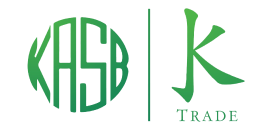The State Bank of Pakistan (SBP) recently released its quarterly economic review, focusing on the developments during 1HFY20. The SBP took note of the positive impact of reforms and measures introduced to stabilize the economy, citing improving economic indicators including CAD (down 76% YoY) and Fiscal Deficit (down 0.4 pps YoY). The central bank, however, feels that the ongoing COVID19 pandemic and the consequent lockdown will likely overshadow and offset these positive developments in the coming months.

Economic Outlook
The SBP felt that Pakistan’s economy was on track to pull itself out of the stabilization phase. The SBP had initially estimated a GDP grow th rate of 3.0%, lower than GoP’s target of 4.0%, primarily due to subdued agricultural output and constricted LSM growth. The SBP is now expected to revise down its GDP projections in light of the outbreak. The SBP takes note of the provincial lockdowns and its fallout on economic activity and consumer spending. These developments will likely compel the SBP to considerably lower its GDP growth projections.
GDP growth expected to take a hit
The SBP attributed its original conservative GDP growth projections to the stabilization measures and its impact on the LSM industries. The central bank attributed slowdown in automobiles, petroleum products and steel for said decline. For 2QFY20, the SBP felt that the LSM sector had started depicting signs of recovery, with emphasis on the construction and textile industry.
Within the Agricultural sector, the SBP noted that key crops including wheat and cotton were significantly undershooting production targets. Moreover, the SBP expects the agriculture segment to continue its underperformance due to subdued crop yields of rice, cotton and sugarcane, likely missing their targets by 3%, 26% and 2%, respectively. Onwards, the SBP feels that improved water availability during 2Q (~+20%) in addition to a 17% increase in agri-credit off-take to PKR 615bn during 1HFY20 (target of PKR 1,350bn during FY20) will likely bode well for the sector.
Medium term inflation target intact
The SBP took note of the inflationary pressures during 1HFY20, mainly holding food inflation responsible for the increase. While CPI averaged 11.11% during the period, food inflation spiked to 19.74% with the perishable segment rising as high as 82.31%. The SBP felt that inflation was largely due to temporary supply disruptions and therefore, kept their inflation target broadly unchanged at 11%-12% for FY20. Moreover, the SBP has also kept its inflation target at 5%-7% over the medium term.
Fiscal Position showed marked improvement
The SBP took note of the improvement in fiscal deficit during 1HFY20, registering at 2.3% during 1HFY20 compared with 2.7% the preceding year. Strict fiscal controls during 1QFY20 allowed a greater fiscal space for 2QFY20 to increase overall expenditure. The subsequent increase in expenditures, however, outpaced the growth in revenues causing fiscal deficit to rise to 1.6% during 2QFY20 against 0.7% the preceding quarter.
Total revenue collection grew substantially by 39% YoY to PKR 3.23tn largely supported by a 213% increase in non-tax revenues to PKR 766bn while tax revenues grew by 18% YoY to PKR 2,465nn during 1HFY20. Tax growth was largely attributable to higher GST collection of petroleum, re-enactment of taxes on telecom services, and increase in salary tax slabs, among other things. Growth in non-tax revenues was largely due to increase in SBP profits.

Analysis of Pakistan’s State of Competition
In the quarterly report, the SBP has done a special section on “The State of Competition in Pakistan”. The SBP cites evidence that competition in product markets enables sustainable economic growth via an increase in productivity. The SBP uses historical examples in its analysis to identify potential benefits of promoting competition including a substantial increase in productivity. Moreover, the analysis suggested that competition keeps prices low and stable for the consumers.
According to a study conducted in the UK, introduction of a cartel law enhanced labor productivity by 20-30%. Moreover, another study conducted in the US suggested cartel enforcement saved an estimated USD 1.85bn between CY00 and CY07. According to a study by the World Bank, Pakistan had one of the highest excess profits and level of mispriced sales between FY03 and FY11 due to cartelization, estimated at 1.1% of GDP.
In light of their analysis, the SBP believes that introduction of an optimal competition policy is required in a bid to incentivize competition and discourage exploitative & monopolistic behavior.
Within Pakistan, the SBP believes that the government’s involvement in certain sectors remains high, citing the GoP’s involvement in setting prices (OMCs, Pharmaceuticals, Agricultural Produce) or providing substantial duty protection (automobile assembling). Moreover, the SBP feels that incentivizing production with support prices and subsidies is not conducive towards efficient production practices. According to the report, Pakistan ranks 110 out of 141 economies on the World Economic Forum’s Competitive Index, lowest among South Asian countries.
The analysis goes on to state that Pakistan’s economy needs to rethink its regulatory structure, ensuring the government’s intervention remains minimal. The analysis elaborates on the importance of streamlining and rationalizing trade policy to encourage competition and export-orientation. With this regard, the SBP considers the approval of the country’s first National Tariff Policy an encouraging development, emphasizing that tariffs should not be used as revenue generating measures but rather as a support for industrial development.
The SBP concludes by stating the importance of improving the effectiveness of the Competition Commission of Pakistan (CCP), citing the need of a “credible enforcer” against anti-competitive practices. The analysis suggests CCP’s engagements with other institutions including Board of Investments (BOI) and the Federal Board of Revenues (FBR) as a necessary step for the completion policy to work.
KASB Research

